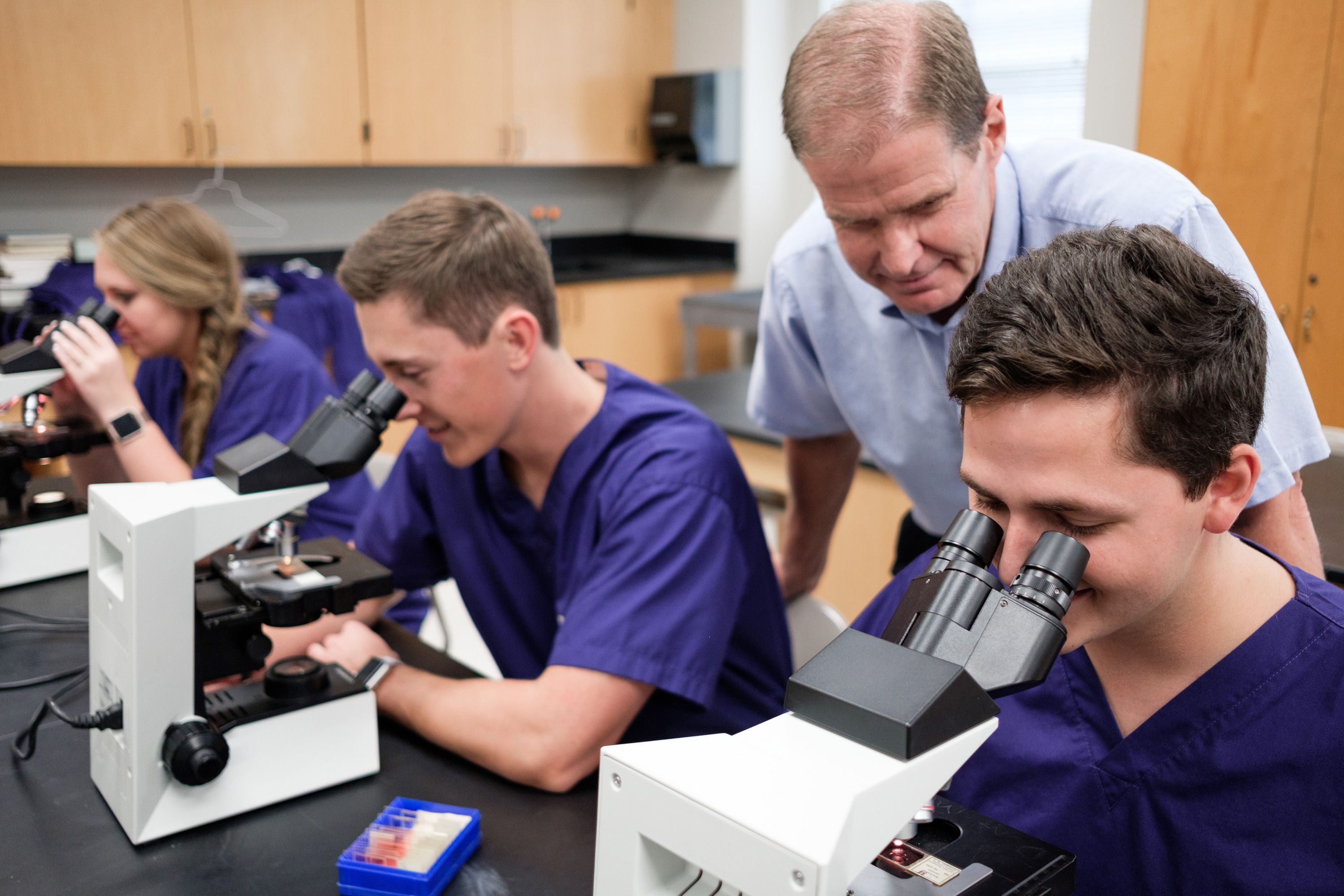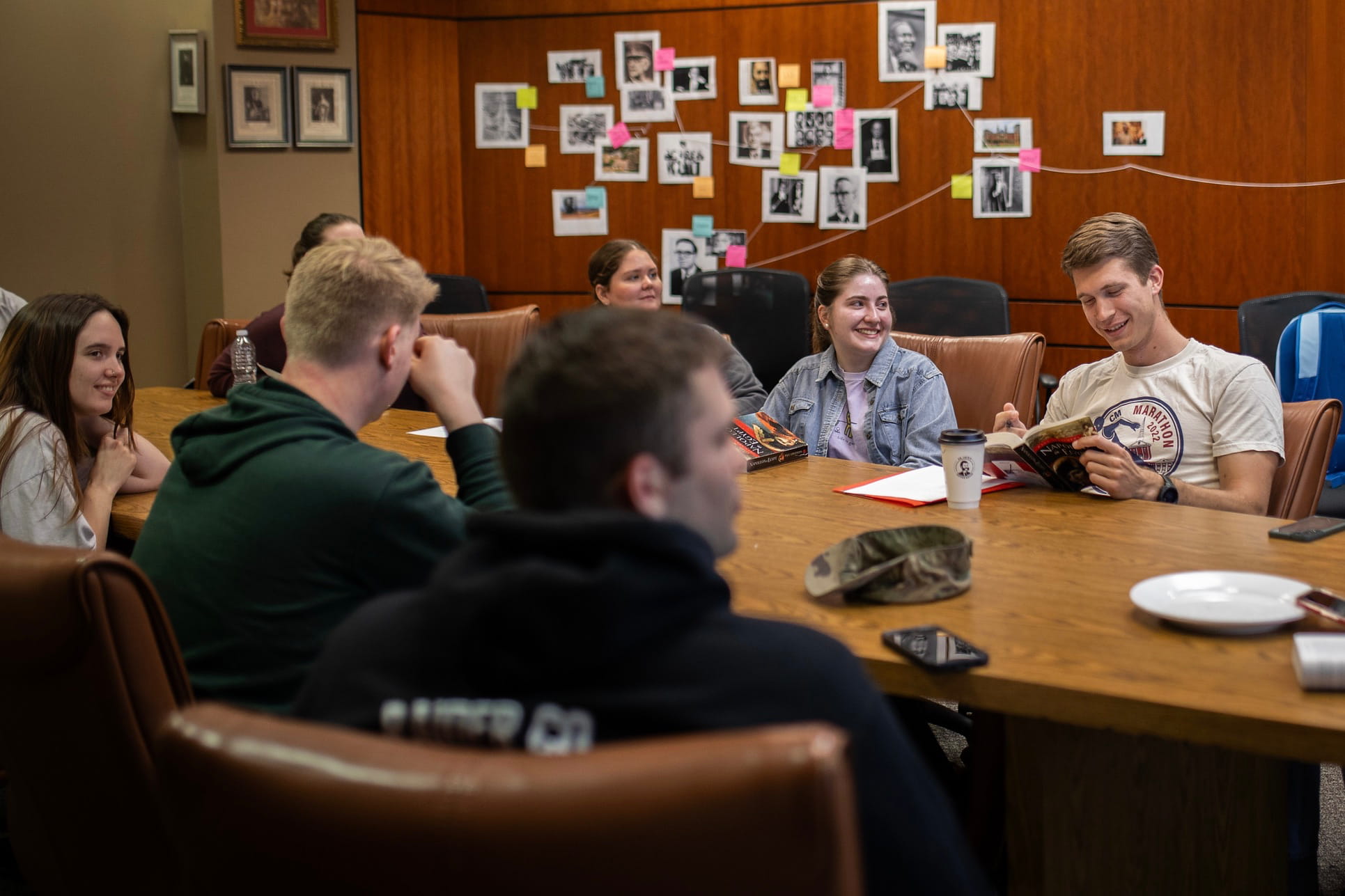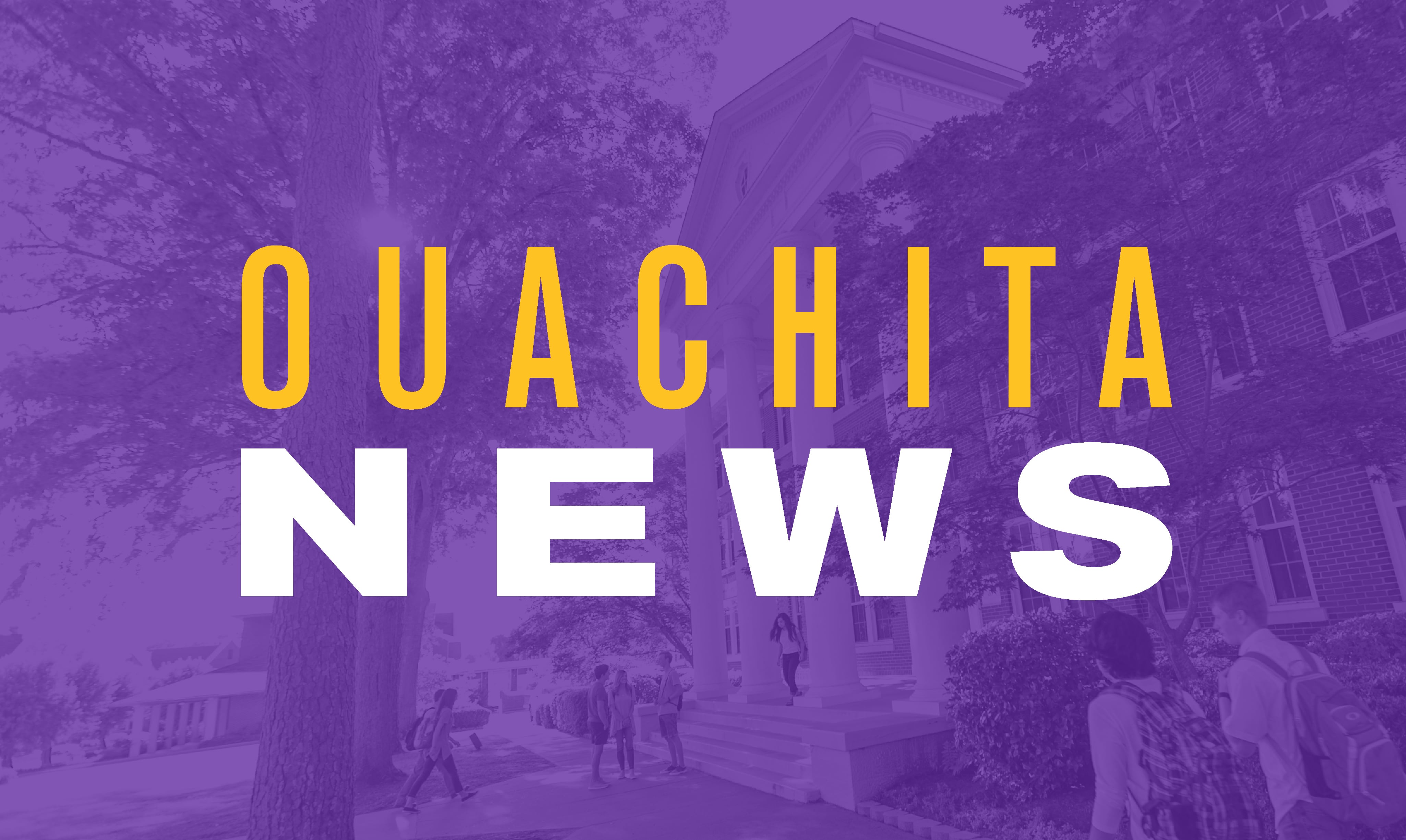New possibilities: Alliance tackles nursing shortage
 October 29, 2018
- Ben R. Sells
October 29, 2018
- Ben R. SellsEditorial Note: The following article originally appeared as an OpEd in the Arkansas-Democrat Gazette on Oct. 29, 2018. See the original here.
Arkansas is facing a healthcare crisis. By the year 2020, the Institute of Medicine
forecasts a shortage of 15,000 nurses. The impact is real: less accessible healthcare
and overworked nurses, especially in rural communities.
Such challenges create opportunities for innovation.
Ouachita Baptist University and Baptist Health have developed an innovative approach—more
than two years in the making—to get more nurses in the workforce sooner. For many
reasons, including our similar missions and shared values, our partnership is a natural
fit.
Baptist Health is Arkansas’ largest and most comprehensive not-for-profit healthcare
network with more than 175 points of access. Ouachita Baptist is a leading private
university in the state with an enrollment of 1,660 students, 65% of whom are from
Arkansas.
Both Baptist Health and Ouachita recognize the need to increase the number of nurses
who are entering the workforce while also building a workforce with advanced degrees,
national certifications and specialized learning in order to respond to the growing
complexity of patient care. Baptist Health has both an advantage and a limitation
in meeting these needs.
The advantage? Baptist Health has a long history of educating healthcare professionals
through its educational division, Baptist Health College Little Rock (BHCLR). BHCLR
operates a large and respected associate degree program in nursing and is the leading
pipeline of nurses to Baptist Health.
The limitation? BHCLR is committed to the many non-traditional, often second-career
individuals who are interested in nursing. This population often prefers an efficient
route to licensure and employment. The 18-month associate degree model at BHCLR serves
this population well and allows the profession to be an attainable goal for many students.
Ouachita, too, has an advantage and limitation.
The advantage? Exceptionally strong science and pre-professional programs—enrolling
27% of our students—with Higher Learning Commission accreditation.
The limitation? It would be expensive to create a traditional Bachelor of Science
Nursing program (B.S.N.), which would increase costs for students. Additionally, it
would be challenging to create enough clinical experiences in our rural location—and
we didn’t want to impinge on Henderson State University’s well-regarded nursing program.
As a result, we took an existing approach, the RN-to-BSN completion model, and reimagined
it. The RN-to-BSN is typically geared for nurses who are non-traditional students
(older than 22) who desire to complete their bachelor’s degree while they work, often
completing their studies online.
Our innovation? A dual-enrollment RN-to-BSN completion program for traditional college-aged
students. With guidance from the Arkansas State Board of Nursing and the Accreditation
Commission for Education in Nursing, here’s how it works.
Ouachita students complete their freshman and sophomore years on our Arkadelphia campus,
immersed in our Christian liberal arts residential program. They will take three courses
introducing them to nursing, helping them decide if it’s the perfect career fit. They
will simultaneously complete the prerequisite requirements to apply to BHCLR.
After acceptance to BHCLR, they spend their junior year and half of their senior year
in Little Rock to earn the Associate of Applied Science in nursing degree, which involves
all pre-licensure courses and extensive clinicals in the Baptist Health system. At
the same time, they are dually enrolled in Ouachita Online, taking three other nursing
courses.
Prior to the student’s senior spring semester, they will apply to take the National
Council Licensure Examination. Once licensed as a registered nurse, the student will
finish post-licensure B.S.N. courses through Ouachita Online. In this model, students
can begin working as an RN sooner than peers in traditional programs. This accelerates
meeting the nursing need and is attractive to students concerned about costs.
In this innovative approach and partnership, everyone benefits—especially Arkansans—by
having more nurses to meet their healthcare needs.
Institutions of higher learning can’t maintain and enhance their relevance if they
are not attuned to emerging societal needs and challenges and committed to finding
the most innovative means of responding to them. True innovation is adaptive, strategic,
sustainable and highly cost-effective. Institutions that foster innovation make themselves
better by better serving the public interest.
Innovation is about seeing new possibilities in old problems. This innovative approach
will help solve the nursing shortage today and other problems tomorrow, and is but
the beginning of a new era of innovation for Ouachita Baptist University.
By Dr. Ben Sells, President, Ouachita Baptist University
October 29, 2018
Editor's note: The dual enrolled program with BHCLR was discontinued in March 2023.
You Also Might Like
Recent
Ouachita reports Spring '26 enrollment, led by 50% increase in graduate students
February 11, 2026




